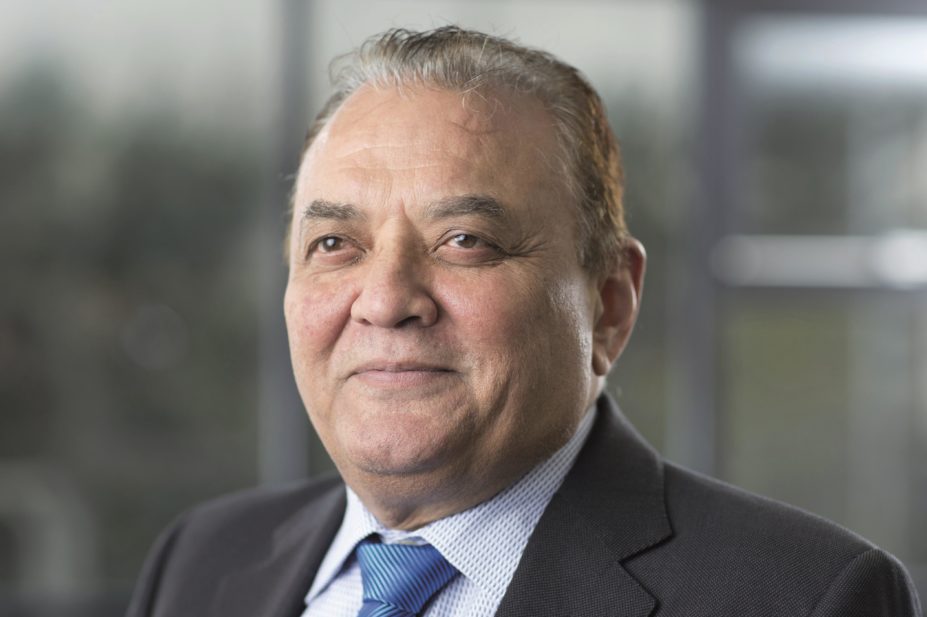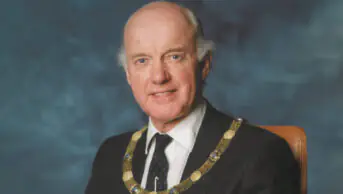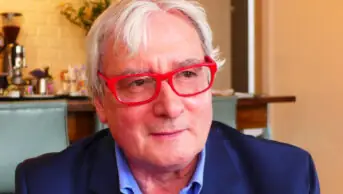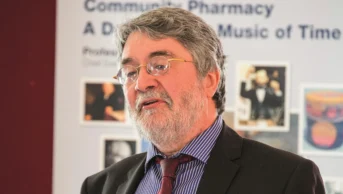
Jason Alden / REX / Shutterstock
Kirit Patel, co-founder and chief executive of the Day Lewis group, died aged 66 years from a heart attack on 16 July 2016. He built up a business of 275 pharmacies, employing 2,000 people, over his 40 years in the profession.
The family business, in which all three of his children are involved, was valued at £105m in the 2016 Sunday Times Rich List.
Patel served as treasurer of the Royal Pharmaceutical Society, vice chair of the Pharmaceutical Services Negotiating Committee and chair of the National Pharmacy Association. In 2004, he was appointed to the government’s Better Regulation Task Force and was awarded an MBE in 2005. He was also a non-executive director of Brighton and Sussex University Hospitals NHS Trust.
Born in Kisumu in Kenya, where his father, Chimanbhai, ran a hardware shop selling goods ranging from single cigarettes and scoops of oil to ploughs, Patel was sent to boarding school in Truro, Cornwall, in the hope that this would lead to medical school. Lacking the grades to fulfil his father’s ambition for him to become a doctor, he studied pharmacy at Portsmouth Polytechnic, qualifying in 1974.
After his father died in 1974, when Patel was 24, he brought his mother, Shantanben and elder brother, Jayanti, over from Kenya with the aim of building a settled family life. In 1975, he and his brother bought two pharmacies in Southborough, Kent. “I wanted to have my own shop and to make a safe living to support my mother and brother,” he said.
We went down to eight shops by 1990 and barely survived — it made me take corrective action
By 1986, he had 32 shops but completing an MBA at the University of Westminster made him realise that his business was unsustainable at a time when interest rates were 16%. “We went down to eight shops by 1990 and barely survived. It made me take corrective action,” he said. “The biggest challenge has always been riding out the economic cycles.”
Patel believed the future lay in giving employees more autonomy and a greater emphasis on continuing development. “We changed the culture,” he said. “I became more visible and involved in pharmacy politics. I realised people are only loyal to an individual and not an organisation. I learnt to trust others and to hand over the keys.”
He was particularly proud when, in 2007, the government required £6m from Day Lewis as part of the category M clawback, and his employees came up with £3.3m in efficiency savings.
In 2011, Day Lewis launched a joint venture scheme in which the company would contribute funds to help young pharmacists buy a pharmacy in return for a stake in the business.
Patel launched the Day Lewis academy in 2012, an initiative using the company’s intranet to deliver training to staff. In 2014, he introduced the second pharmacist scheme to ensure preregistration trainees were given a job and a mentor in Day Lewis pharmacies.
In 2014, Patel was named chief executive of the year at the PwC Private Business Awards and Day Lewis achieved gold status in the Investors in People awards.
He gained a diploma in philosophy from the University of Brighton and completed the advanced management programme at Wharton business school, University of Pennsylvania. In June 2016, the University of Bath awarded him an honorary doctorate in business administration.
Energetic and hugely sociable, Patel was a keen supporter of Liverpool Football Club. He had a pilot’s licence and enjoyed golf, skiing and driving expensive cars. He owned a Ferrari, Aston Martin and Range Rover. He climbed Kilimanjaro with ten of his family members and friends and drove from London to India, crossing 17 countries. At the time of his death, he was hoping to expand his business to Ireland and Eastern Europe, with a hope to increase the number of Day Lewis pharmacies to 400.
Patel witnessed the disappearance of independent pharmacies whose number had fallen during his four decades in business and firmly hoped that Day Lewis would remain a family-owned independent.
My vision for Day Lewis is to remain in the hands of my children’s children
Speaking at the company’s annual conference in November 2015, he said: “Private equity houses have been looking closely at the retail pharmacy industry for a while. We have been approached a number of times but my vision for Day Lewis is to remain in the hands of my children’s children.”
And it remained a regret that his father did not live to witness his success. “I always remember telling my father ‘give me £10,000 and I’ll make more money in ten years than you’ll make in your entire life’,” he said in 2012.
He is survived by his wife, Nalini, daughter Rupa, sons Jay and Sam, and brother Jayanti.
You may also be interested in

Philip Leon Marshall Davies (1938–2026)

Bill Scott OBE (1949–2025)
